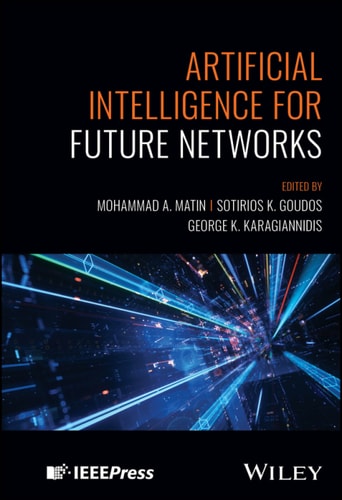

Most ebook files are in PDF format, so you can easily read them using various software such as Foxit Reader or directly on the Google Chrome browser.
Some ebook files are released by publishers in other formats such as .awz, .mobi, .epub, .fb2, etc. You may need to install specific software to read these formats on mobile/PC, such as Calibre.
Please read the tutorial at this link: https://ebookbell.com/faq
We offer FREE conversion to the popular formats you request; however, this may take some time. Therefore, right after payment, please email us, and we will try to provide the service as quickly as possible.
For some exceptional file formats or broken links (if any), please refrain from opening any disputes. Instead, email us first, and we will try to assist within a maximum of 6 hours.
EbookBell Team

0.0
0 reviewsArtificial Intelligence for Future Networks illuminates how artificial intelligence (AI) and machine learning (ML) influence the general architecture and improve the usability of future networks like B5G and 6G through increased system capacity, low latency, high reliability, greater spectrum efficiency, and support of massive internet of things (mIoT).
The book reviews network design and management, offering an in-depth treatment of AI oriented future networks infrastructure. Providing up-to-date materials for AI empowered resource management and extensive discussion on energy-efficient communications, this book incorporates a thorough analysis of the recent advancement and potential applications of ML and AI in future networks.
Each chapter is written by an expert at the forefront of AI and ML research, highlighting current design and engineering practices and emphasizing challenging issues related to future wireless applications.
Some of the topics include
Signal processing and detection, covering preprocess and level signals, transform signals and extract features, and training and deploying AI models and systems
Channel estimation and prediction, covering channel characteristics, modeling, and classic learning-aided and AI-aided estimation techniques
Resource allocation, covering resource allocation optimization and efficient power consumption for different computing paradigms such as Cloud, Edge, Fog, IoT, and MEC
Antenna design using AI, covering basics of antennas, EM simulator/optimization algorithms, and surrogate modeling
Identifying technical roadblocks and sharing cutting-edge research on developing methodologies, Artificial Intelligence for Future Networks is an essential reference on the subject for professionals and researchers involved in the field of wireless communications and networks, along with graduate and PhD students in
…